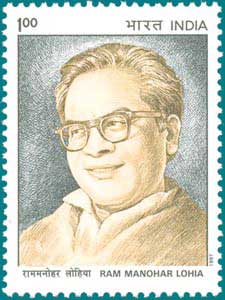Often, a name pops up on the screen, rings a bell and lingers in the mind while one goes about other things. And so it was with that of Nandana Ishbiliya Reddy, a name reminiscent of the previous time I lived in Bangalore. Her mother Snehalata Reddy, dancer, actor and ardent socialist activist, was lodged in Bangalore Central Jail and died on her release two months before the lifting of the Emergency (June 1975-March 1977), when constitutional rights were suspended by Indira Gandhi, who had long mouthed the slogan “Garibi Hatao” (eradicate poverty) but became obsessed with eradicating opposition to her highhanded rule.
Googling led to a most moving and gripping account of Nandana’s life as a young person surrounded by some outstanding people. Her parents – her father Pattabhi Rama Reddy was a noted filmmaker and produced Samskara featuring his wife as well as writer and director Girish Karnad, that stands out as a landmark in Indian cinema – kept an open house and hosted some great minds of the day, including the socialist leader Dr Ram Manohar Lohia.
Nandana’s writeup, “Growing up with Doctor” (http://nandanareddy.blogspot.in/), makes for a rewarding read. There are many gems in there but one of immediate resonance is a brief passage about Lohia’s confrontation in parliament with Prime Minister Jawaharlal Nehru (Indira Gandhi’s father) over poverty and extravagance. It resonates because just the other day ace investigative journalist P. Sainath wrote a scathing piece, “The austerity of the affluent” (http://www.thehindu.com/opinion/columns/sainath/article3439624.ece), lampooning the foreign travel bill of India’s Deputy Chairman of the Planning Commission Montek Singh Ahluwalia, by whose definition of poverty, many abjectly poor people might well have to be deemed middle class.
First, here is the passage from Nandana Reddy’s blog:
“Lohia shook Parliament when he arrived. The country had a one-party government that had survived three general elections. I remember the pamphlet [by] Doctor [Lohia], ‘25,000 Rupees a Day’, the amount spent on Prime Minister Jawaharlal Nehru, claiming that it was an obscene sum in a country where the vast majority lived on 3 annas (less than one-quarter of a rupee) a day. Nehru responded by saying that India’s Planning Commission statistics showed that the daily average income was more like 15 annas (a little under a rupee) per day but Doctor Lohia insisted that this was an important issue and demanded a special debate. This controversy is still remembered as the ‘Teen Anna Pandrah Anna controversy’. We followed the ensuing debate closely, a difficult thing to do at a time when there was no TV or internet and we were dependent on the All India Radio and the post.
“We heard how Lohia captivated and aroused Parliament as member after member gave up their time to Doctor to build his case. He demolished the Planning Commission statistics as unreal and established that his figure was true for over 70% of the population.”
Sainath has this to say of the poverty definition according to Ahluwalia today, of calls for austerity and of how they are being heeded:
“Spend Rs 29 a day in urban India or Rs 23 in rural India and you are not poor. He’s even asked the Supreme Court to uphold the imposition of such rigour on hundreds of millions of his fellow citizens. One affidavit filed by the Planning Commission defended a line of Rs 32 (urban) and Rs 26 (rural) a day.” [Rs 32 would be worth just about 55 US cents.]
Sainath notes that journalistic enquiries by two other news outlets relying on the Right to Information legislation had shown that between May and October 2011, Ahluwalia had made four foreign trips covering 18 nights and cost the exchequer more than Rs 3.64 million.
“At the time this happened, that … would have been worth $4,000 a day. (Gee! Lucky for us Montek was into austerity. Imagine what his expenditure might have been otherwise). That is a daily spend almost 9,000 times greater than the 45 cents cut-off point at which rural Indians would be doing okay, in his view. Or over 7,000 times greater than the 55 cents cut-off point for urban Indians that Dr Ahluwalia would find ‘normatively adequate’.”
Ahluwalia retorted later that he put in 14-hour days on those foreign trips and that he was acting as “Sherpa” for the prime minister, only to draw further caustic comment from Sainath.
The expenditures measured in respect of Ahluwalia and Nehru (incidentally, it is 48 years since his death on 17 May 1964), were of a different nature but the point is that those in power seem to lose sight of ubiquitous ugly poverty in India. Rather they seek to define it away or argue it away.
Sainath leads a Spartan life while chronicling rural poverty and uses royalties from his book, Everybody Loves a Good Drought, to fund prizes for rural journalism. And Nandana Reddy heads an NGO combating child exploitation, The Concerned for Working Children (http://www.concernedforworkingchildren.org/).

We need more such debate–the worst fact there is hardly any one in the opposition as spirited as Lohia to take on the Ahuwalias of the world… and however much media is it is just shadow boxing..not real punches…But the consolation is that there is one Sainath willing to debate it…Cheers…
Excellent post,Jayarambhai.
Very enlightening
Excellent essay. I plan to write a book about Mr Lohia some day, so this is really helpful. What do you think of ‘The Man We Forgot’ as a title?
Shovon,
So you are another writer who thinks of a title first and the rest later. To paraphrase a Chinese saying, a journey of a thousand pages starts with a single word.
Yours is a good title, I believe. Shall put you in touch with one of my Lohiaite friends.